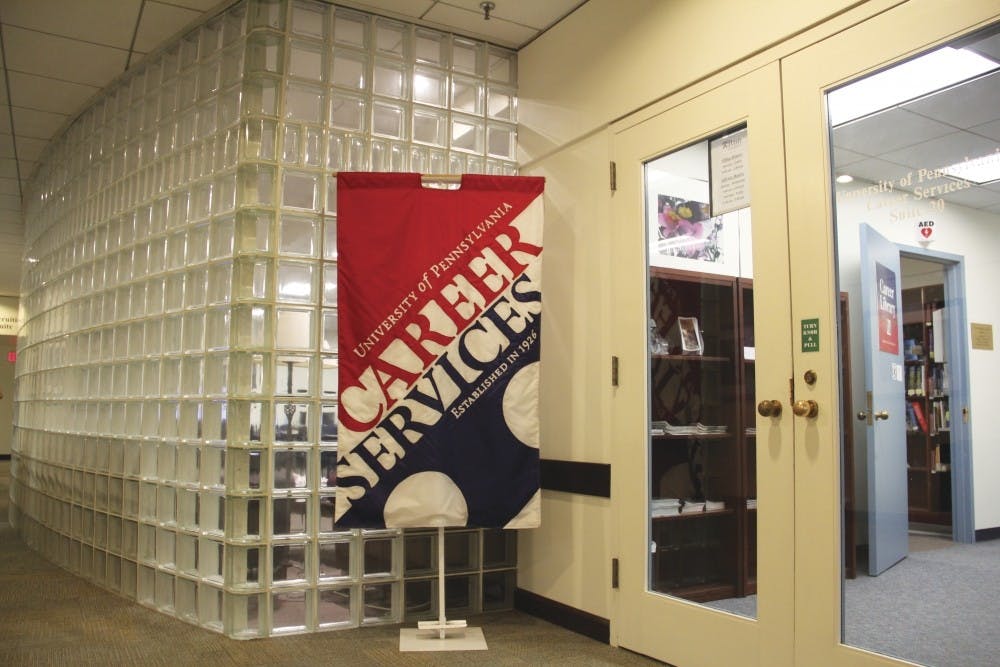
Of 2,085 students surveyed from the Class of 2016, 89 percent secured full-time employment or continued their education at the end of the school year, according to Career Services data.
But 2016 College graduate Aaron Lasker is one of approximately 230 students who fell outside these categories — for the past semester, Lasker has been sleeping in his friend’s room in Stouffer College House while preparing to attend law school next year.
Students who choose to break the mold and try something different after graduation often end up pursuing a range of interests. Out of the approximately 11 percent of 2016 Penn graduates who did not go on immediately to a full-time job or a spot at graduate school, 4 percent were seeking employment, 2 percent were seeking to continue their education, while the rest were employed part-time, joining the military or engaged in volunteer services. These statistics also closely mirror the plans of 2015 graduates.
According to Director of Career Services Patricia Rose, students decide to defer graduate education or full-time work for a range of reasons from illnesses to a desire for other life experiences.
Rose stressed that the vast majority of these students made a conscious decision to pursue other plans after graduation. In fact, some of them were already accepted to graduate programs but decided to defer their enrollment for a year.
“There are some people who say ‘this is what I want to do and get on with it,’” Rose said. “But others want some time to clarify their goals and do something totally different.”
Lasker will most likely attend the University of Chicago Law School in the fall, but is waiting to hear back from other schools before making a final decision.
He described his future as uncertain in the short term, but clearer in the long term. After spending a few months after graduation traveling and studying, he decided to return to Penn in January to focus on freelance writing and research. Since returning, Lasker has spent much of his time helping students with their coursework.
“I feel a sense of familiarity with the culture, and as a result, it’s not too difficult to engage with the community,” he said. “I feel that I can be in a position of providing help and receiving help from others here.”
While Lasker said he did feel underutilized in his year off, he has been able to keep himself busy by offering guidance to students.
“Graduation for most people brings a different kind of world all together, but so far as I wasn’t able to do that, it’s definitely comforting to have this world that I left behind,” Lasker said.
Not all students who take time off after graduation decide to do so at Penn.
2016 Wharton and Engineering graduate Michale Goldberger was determined to “leave the Penn bubble” after graduation. She moved to Kampala, Uganda on a one-year grant to work with Spouts of Water — a nonprofit organization that creates and distributes water filters.
For Goldberger, moving to Uganda was not just about learning more about water security, but also about what she hoped to do in the rest of her career.
“I had negative interest in consulting or banking or even working in a science lab,” Goldberger said. “I had no interest in doing that, mostly because I had a lot of burning questions about what I wanted to do.”
In Kampala, Goldberger said she was able to answer a lot of her own questions and is now hoping to pursue work in agriculture technology.
“I didn’t come to Spouts because I was super passionate about clean water or about helping people get access to water — not that I don’t care about that,” she said. “For me, this is more of a question that I needed to answer about where I think people can be involved and effective in the world.”
2016 College graduate Jacob Shamash also went off the beaten track in search for something different. For him, that meant moving over 5000 miles to Jerusalem.
Now, Shamash studies and works part-time for Yachad, a Jewish non-profit which promotes inclusion for people with disabilities.
“This has been a great opportunity to live beyond my comfort zone,” he said. “I wanted a fresh place.”
Shamash is planning to attend medical school in the fall, but has not decided whether he will go to Rutgers Robert Wood Johnson Medical School, where he has been accepted, or stay in Israel and get his medical degree at either The Medical School for International Health at Ben-Gurion University of the Negev or Ruth and Bruce Rappaport Faculty of Medicine at Technion Israel University of Technology.
“I wanted a break from the culture,” Shamash said. “I didn’t feel ready yet to enter into the traditional professional world, though I don’t know if I ever will.”
The Daily Pennsylvanian is an independent, student-run newspaper. Please consider making a donation to support the coverage that shapes the University. Your generosity ensures a future of strong journalism at Penn.
Donate



